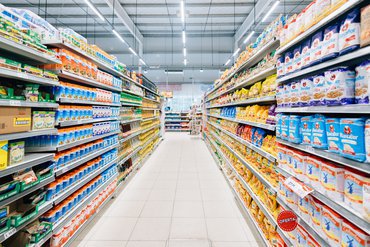Despite the surge in online shopping over the past year, in-store shopping is still important to consumers. During a panel discussion that was part of the 2021 Food Edge Virtual Summit last week, Eric Braun, senior director of innovation of Retail Business Services; Patricia Courville, national director of the UpNext guidance program at UNFI; and Hugh Holman, co-founder and CEO of analytics company Observa, spoke about lessons learned about in-store retail during the pandemic.
Takeaways included:
The pandemic accelerated the need for a smoother omnichannel experience.
“COVID has allowed us to adapt quickly, but it’s because we’d already begun the journey to a more seamless omnichannel experience,” said Braun. “If we hadn’t, it would have had a more detrimental impact on us.”
Courville noted that smaller independent retailers had an easier time pivoting. “They worked with restaurants and communities to get products other places couldn’t get,” she said. “There was a great level of creativity in an environment that no one ever anticipated.”
Data can be leveraged to drive retail growth.
“There’s a rush for retailers to understand the behaviors of consumers in their shops,” said Holman. “Artificial intelligence is being used for everything from identifying spills and out-of-stocks to product identification. The move towards automation of shelf maintenance must happen.”
Holman suggested that retailers provide a similar experience in-store as online. “If you’re on Amazon, you have information to help you make decisions. There’s an ability to create a more personalized experience for shoppers in-store. And data drives that ability,” he said.
Pandemic trends like at-home experimentation with cooking and ethical consumerism continue.
“Consumers are trying new things, cooking at home more, listening to podcasts and watching cooking channels,” said Courville. “They want healthy, good-for-you, healing foods.”
Courville also noted that smaller companies, especially those that support sustainable and ethical causes, are seeing success. “Retailers want to support small brands,” she said. “COVID was tough on emerging brands, but we’re turning a corner now and consumers are looking for companies that are local, functional, and healthy.”
More retailers are experimenting with cashierless technology.
Braun shared that Retail Business Services is testing Lunchbox, which is similar to Amazon Go’s Just Walk Out technology. With Lunchbox, customers can walk into the store, take things off shelves or put them back, and when they’re done, they can walk out and the store automatically adds purchased items to an account on their mobile device.
“That frictionless experience is important to the consumer, and will become more important as the younger generations grow up and expect more tech in stores,” Braun said. “Anything we can do to make the experience faster is beneficial.”
Related: Plant-Based Foods Could Ease Rollout of Lab-Grown Meats: Panel; Choice Market Opens Tech-Enabled Location.

